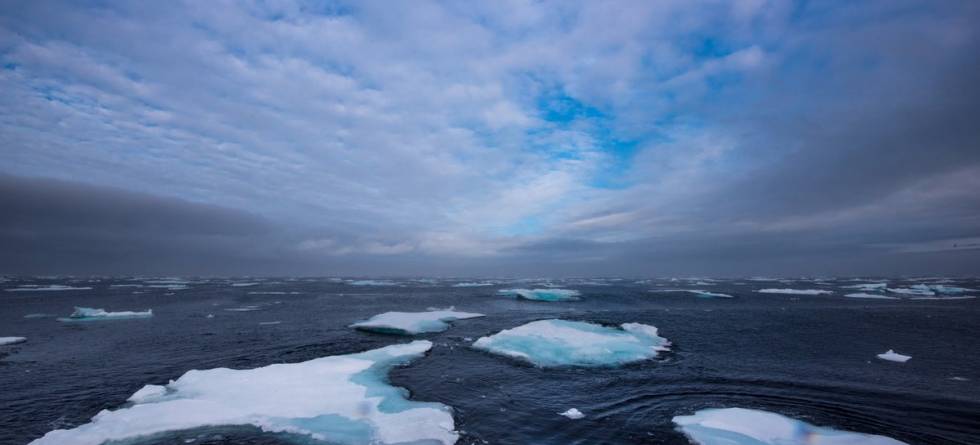The climate system of the Barents Sea has been seen as an effective “cooling machine”.
Coming north along the North Atlantic Current, warm water has been rapidly chilled when it comes to the Barents Sea, due to heat loss to the atmosphere.
“This cooling dampens the temperature variation of the water entering the Barents Sea,” says Øystein Skagseth, researcher with IMR and the Bjerknes Centre for Climate Research.
This dampening mechanism then leads to the water flowing out of the Barents Sea, becoming a part of the global ocean circulation, also holding a consistently low temperature.
The Barents Sea on its way to a warmer ocean climate
Researchers has believed that with warmer water, and the following lower ice coverage in the Barents Sea, that heat loss to the atmosphere would increase – and the Barents Sea would become an even more effective “fridge”.
“Since the 1990s the temperature of the Atlantic Ocean has increased, leading to less ice,” says Skagseth.
“But it has not become a more effective “fridge”. Surprisingly, we found that the general cooling of the Atlantic Ocean water – coming through the Barents Sea – has been reduced. It may come from more heat or moist winds from the south, and lead to a reduced cooling,” says the IMR researcher.
This is shown in a new study, done by researchers from IMR and the University of Bergen, collaborating in the Bjerknes Centre, led by Skagseth.
Researchers have done hydrographic observations from 1971-2018. Hydrographical observations are measurements of chemical and physical relations in the ocean water, like salinity, temperature and circulation.
“If this trend keeps up in the future, this is a mechanism driving the Barents Sea towards a warmer ocean climate.”
Huge consequences for fish and marine life
A warmer ocean climate, both in the Arctic and globally, has consequences.
“An example: if bottom water is heating up, it can affect the prevalence of some species of fish, like cod and haddock. The productive parts of the ecosystem in the Barents Sea might shift east, towards the Russian zone,” says the researcher.
Another consequence is global; in the climate system the Barents Sea is important for the global ocean circulation. When combining the warmer North Atlantic Current with less cooling, it means the water flowing out of the Barents Sea to the Norwegian Sea and the Arctic Ocean has become much warmer – which then affects currents further beyond the Barents Sea.
Must be surveilled over longer time periods
Skagseth emphasises that we cannot yet determine whether the ocean climate in the Barents Sea has changed for good.
“Regarding global warming, we can quite confidently say that the Atlantic Ocean will heat up. But it´s not certain how changes in the atmosphere, like storm tracks and dominating wind directions will end up. In addition, there are large natural variations, which means we have to follow the development on a longer time scale to determine if there has been a change.
“But our data over the past 20 years, shows that the Barents Sea is changing, and moving towards a warmer ocean climate.”
Reference:
Skagseth, Ø, Eldevik, T, Årthun, M, Asbjørnsen, H, Lien,VS, Smedsrud, LH (2020) Decreasing efficiency of the Barents Sea cooling machine. Nature Climate Change, DOI:10.1038/s41558-020-0772-6

